DSEI 2021 – A new uncrewed marine platform is available for use in intelligence gathering and threat detection.
Licensed by Ploughshare to L3Harris, this Defence Science and Technology Laboratory (Dstl) technology “combines cutting-edge autonomy with marine hardware to provide next-generation marine capability”.
“The Maritime Autonomy Surface Testbed (MAST) vessel is similar to a water-borne drone that can be partly or fully autonomously controlled to identify threats such as enemy ships or collect intelligence on targets while moving at high speeds. This capability gives users the potential to deploy uncrewed missions that will help minimise the risk to service personnel by taking them out of harm’s way. It is also being trialled by Border Force to support operations to prevent uncontrolled crossings and save lives at sea.
The original MAST autonomy technology and algorithms were developed by L3Harris under contracts with Dstl for the Ministry of Defence (MOD), and was superseded by the MAST-13 design that was launched at DSEI in 2019. NavyX, the Royal Navy’s autonomy accelerator program, subsequently acquired a MAST-13 platform, MADFOX, which is currently being utilised for a range of test and evaluation trials.
At this week’s DSEI exhibition, a further licence brokered with Ploughshare’s assistance has been signed that covers the design of the MAST-13 platform. The agreement enables the autonomy system, associated hardware and vessel to be made available in configurations including an ‘off-the-shelf’ package suitable for use by a range of international organisations and commercial operators. It can be used as a testbed for experimentation and deployed in coastal security, port security, intelligence and threat detection.”
James Cowles, Business Development Manager, L3Harris said:
“Through collaborative development with Dstl and Ploughshare, we have a total package – a boat with intelligent autonomy, available for purchase and experimentation in a way that supports the international community’s scalable needs for coastal security.
We are leading the way in autonomous vessel technology and delivering integrated solutions to the Science and Technology community globally in a number of configurations, including a complete ‘off-the-shelf’ system designed from the bottom up to be a testbed offering an unprecedented opportunity to demonstrate, evaluate and exploit the potential of autonomy in maritime security.”
Hetti Barkworth-Nanton, CEO at Ploughshare, said:
“The MAST project is a huge success story in which we are pleased to have played our part. It is a true demonstration of how a novel technology developed in conjunction with a government laboratory is supporting UK jobs, our economy, and the security of society.
A team that was just a handful of people working in a UK start up is now a successful business of more than 130 specialists. By bringing people to together, this cutting-edge technology now has the potential to secure our borders and protect people.”
Ian Campbell, Principal Advisor, Maritime Autonomy at Dstl, said:
“In partnership with L3Harris, Dstl is exploring Uncrewed Surface Vessel (USV) technologies. Dstl instigated the MAST project to design and build systems to facilitate the development, test and evaluation of USV technologies and tactics. This informs and educates the potential stakeholder community of the capability and potential of such systems, which should expedite the transition to operational exploitation.”


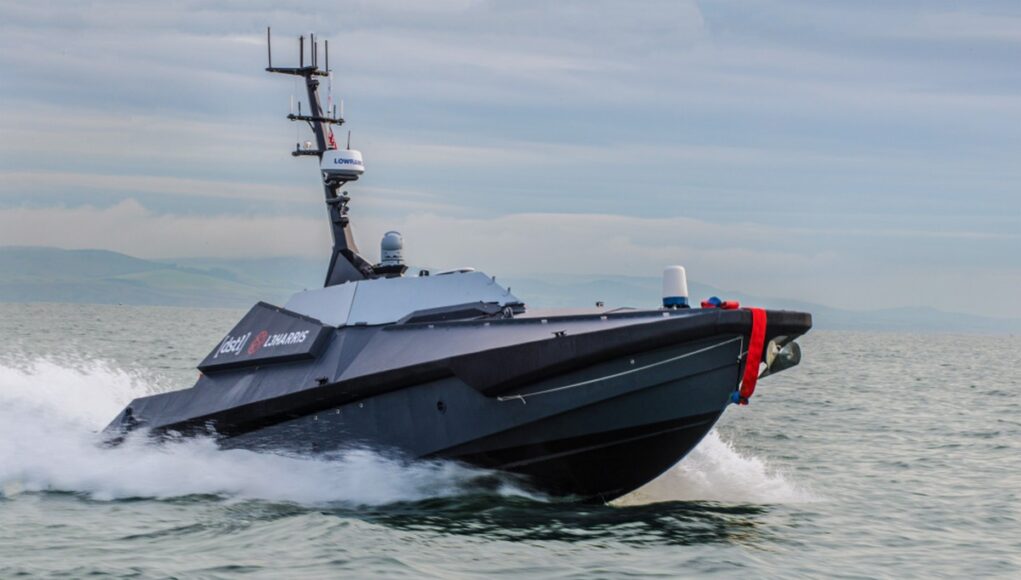
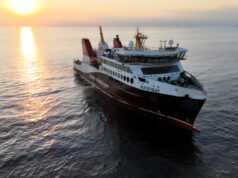
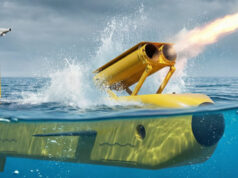
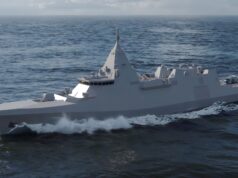
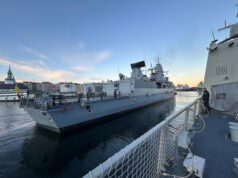
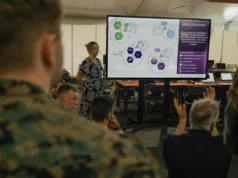

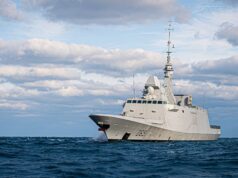
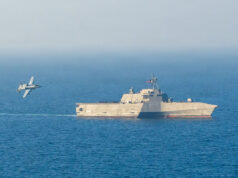
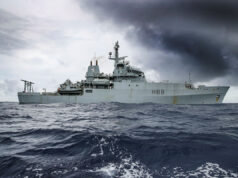
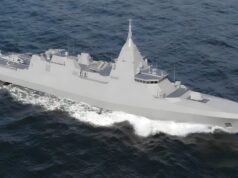

Damn testing buy 5 and a few of those European uav rotorcraft drones all with thermal flir and radar. We can spot the boats in channel and block or turn them round.
Can anyone tell me when legally they should claim asylum in last country why we can’t just dump them on french beach? I’m honestly confused
As of yesterday and what the French state as “A Stab is the Back” over the Anglo pact and the loss of a defence contract with Australia .I don’t think that IIs will be stopped trying to cross the Channel the French would turn a blind eye out of spite
I’m sure the French have never “backstabbed” any country. Also, France obviously didn’t know that their deal was rubbish.
Greta thurnberg would not of approved of diesel electric either
😂
I think Great exists to disapprove Tommo.
I love the gif of her giving Trump her best Paddington Bear hard stare.
Oh no next it will be marmalade production that comes under scrutiny CO2 emissions
It will have to be European marmalade though, not enough pickers in the UK. 😄
Community payback offenders could do the trick or Mr Curry
All of which shows we absolutely made the right decision to leave the EU.
Our real friends are the US and Australia, plus New Zealand (unfortunately NZ has rendered itself militarily irrelevant).
Despite the typical French hissy fit, we still operate well alongside them and this will blow over when their foreign minded histrionics have calmed down…
I’m with you John and the decision to leave the EU the commonwealth, is a far safer bet and now the world is open not blocked by Brussels
Spot on.
So will MoD order some, or will it be more trials for the next 200 years until the next thing comes along that needs trials?
I share the same scepticism Daniele, great to see the massive surge in new technologies though, it seems like there’s something new being launched every week!
It’s fascinating to consider how all this tech will change our Armed forces in 20 years, hopefully it will lead to substantially increased critical mass in all areas…..
I might be wrong, so someone correct me.
Leaving aside the existing Reaper, Watchkeeper, DHIII, and a handful of mini drones called Black Hornet for infantry sections, what has actually been ordered save the UMCMV systems?
Not one of these fancy gubbins we see being trialled for the 100th time has been ordered in number and brought into service. Why?
Probably because of the Pandemic we now have Unmanned Whitehall procurement posts systems UWHPPS